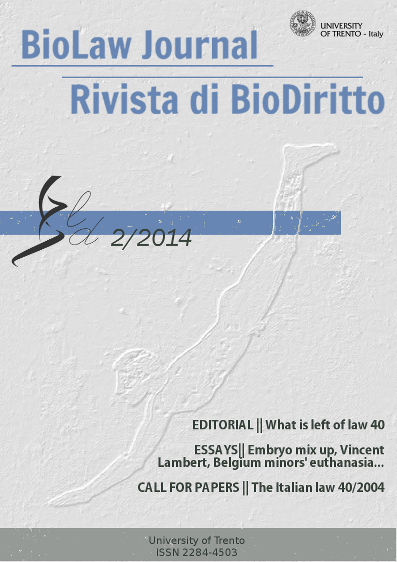Il dibattito sulla PMA eterologa all’indomani della sentenza costituzionale n. 162 del 2014. In particolare: il diritto a conoscere le proprie origini e l’“adozione per la nascita”
DOI:
https://doi.org/10.15168/2284-4503-36Parole chiave:
adoption for the birth, conception, embryos created in excess, artificial reproduction with gametes’ donation, right to know one's own origins.Abstract
The judgment of the Constitutional Court n. 162/2014, which abolished the ban on artificial reproduction with gametes’ donation provided by the Italian Law on Medically Assisted Reproduction (MAR), has raised new and lively discussions. The article exposes the debate concerning rules and regulations which should be imposed on MAR via gametes’ donation. Although the Law no. 40/2004 has been seriously demolished in some important aspects by two constitutional judgments (no. 151/2009 and no. 162/2014), it is still standing in some of its major components, including the fundamental “balance” expressed in Art. 1: «in order to resolve problems arising from the human reproductive sterility or infertility», the Law must assure the «rights of all of the parties involved, including the conceived». The paper deals with both the theme of the fundamental human right to know his/her own origins and the proposal of “adoption for the birth”. The former should be recognised also to children born with MAR via gametes’ donation. The latter should be taken into account – in place of the ex novo generation of embryos partially or totally unrelated to the couple – for those human embryos left without homologous parental project and abandoned. Every human being, even if just conceived, is one of us: this is the central issue of Biolaw which must be courageously faced and which is suggested by modern culture, founded on the principle of equality in human dignity.





